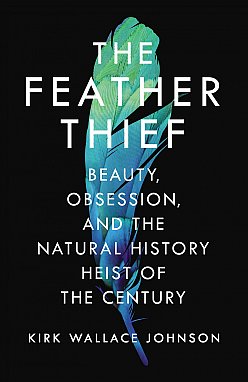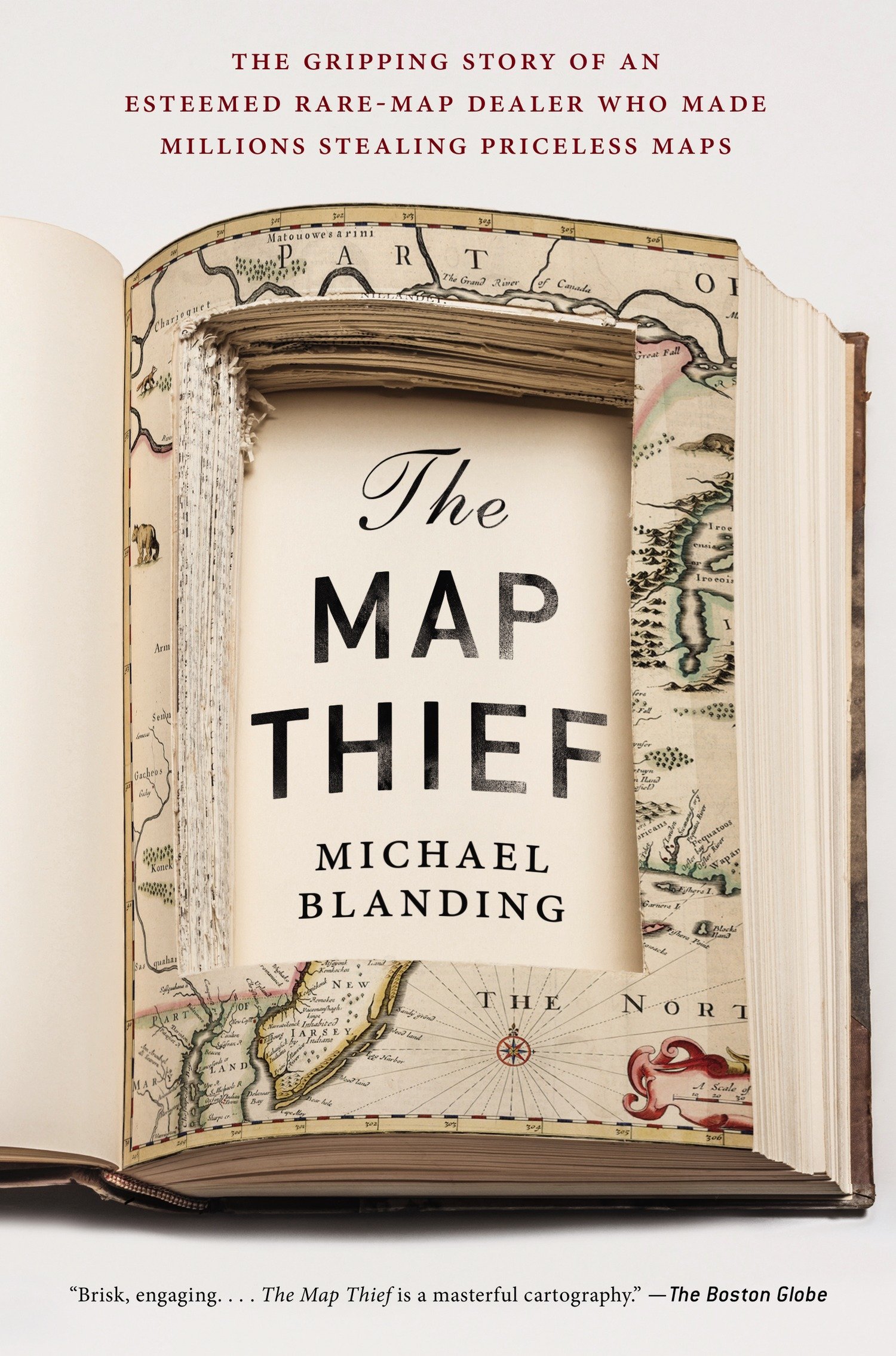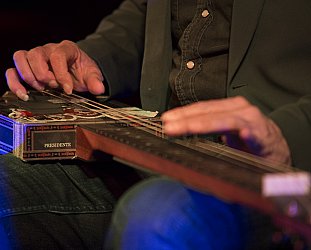Graham Reid | | 3 min read

When the refugee advocate-turned self-appointed sleuth Kirk Wallace Johnson finally got to meet his quarry – a master thief called Edwin Rist –Johnson's wife expressed fears for his safety.
After all, who really knew what this young American would be like now that he had been tracked down in Dusseldorf?
But, said Johnson to Marie-Josie, shrugging the possible danger off, “He's a flute player. He stole feathers!”
Mild mannered flautist and feather thief or not, Johnson still hired a bodyguard who stood outside the room and was prepared to take action.
In the annals of odd thefts, 20-year old Rist stealing feathers and skins (the official name for embalmed birds) from the Natural History Museum in smalltown Tring north of London is certainly at the upper end of the scale.
But on the night of June 23 2009, Rist – acting alone? Maybe not as Johnson dug deeper – broke into the museum and made off with hundreds of skins and feathers.
These were rare treasures in a collection which had been gathered more than a century and half previous by Darwin's peer, the naturalist Alfred Russel Wallace, and were part of a collection of such historic and genetic importance that their value could not be determined. Until Rist got his hands on them.
“The loss of their birds is a natural history disaster of world proportions,” said Judge Gullick at Rist's trial almost two years after the break-in. “These were in effect priceless specimens, both in terms of their financial value but also in terms the scientific interest. They are literally in many cases irreplaceable”
Then he sentenced Rist to 12 months, suspended.
Effectively Rist walked free, and could continue to pursue his music career.
And why did this young, home-schooled child of uber-bright parents in Claverack Creek 120 miles north of New York City steal these feathers and birds and make his escape back to London by local train?
Because these rare, exotic and often breathtakingly beautiful feathers were treasured and sought after by . . . fly-fishers.
In this gripping book Johnson – taking a break from helping refugees out of Iraq where he had been stationed and badly wounded – delves into this audacious theft, the background to the collection and the obsession with exotic birds which literally wiped out hundreds of species and hundreds of millions of birds mostly for women's fashion in the Victorian era.
Wallace may have been a researcher and collector – half a dozen engrossing pages here covering his years of hardship in the Amazonian jungle, a fire at sea in which his thousands of skins, plants, eggs fish and beetles were lost, and his quest for the Bird of Paradise would make a gripping book in itself – but others were just trapping and killing birds for the vanity of women.
One British dealer sold two million skins in a single year, in 1900 200 million North American birds were killed. And the same again the following year.
And then when that fashion craze died down those who loved fly fishing sought out rare feathers for their lures.
Enter Rist – obsessed by fly-tying and quite gifted at it – who planned his robbery and would sell his feathers through the unregulated internet. The feather underground was huge and monied and wanted the rarest of the rare. Often not to fish with but to make elaborate flys.
Johnson's doggedness in tracking down the elusive figures in the underground, List himself and a few fellow travelers (one of whom may have been an accomplice) is a compelling story, shines a light into a hitherto unknown world, has digressions on Aspergers (List's self-diagnosed defense at his trial) and the world of fly fishing.
It is informative, as exciting as any detective story, unbelievably odd in places and not without veiled menace as he gets closer to his quarry.
It is where natural beauty meets base criminality and where the end justified the means for those in the feather underground. Many of the specimens Rist stole have not been recovered and many which have been are now almost worthless for scientific purposes because their tags giving date and location of capture have been removed.
 The unrecovered stolen feathers are stil being traded illegally on the internet.
The unrecovered stolen feathers are stil being traded illegally on the internet.
A very strange story, all the more so for being true.
The Feather Thief by Kirk Wallace Johnson, Hutchinson $NZ38
If The Feather Thief is of interest, The Map Thief by Michael Blanding follows a similarly recent path through the world of audacious thefts of antique maps from books and libraries, and the wheelers and dealers in the rarified and elegant world of American map collectors.





post a comment